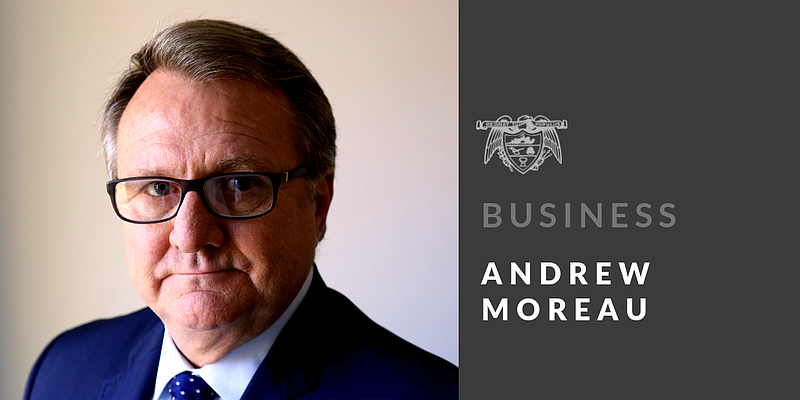Banks apparently are failing to meet the everyday financial needs of customers, who are more and more turning to lenders for help building a firewall against increasing anxiety about the economy and their ability to pay bills.
Bank customers today feel like they're on shaky financial ground and they're frustrated their lenders aren't doing enough to help. Americans are not so much interested in finding the best interest rates but in having a banking partner to help them get through grueling times.
Layered against fears over bank failures, consumers are rattled by more practical concerns related to inflationary pricing and uncertainty about the economy. Americans are looking to their banks for help and finding nothing.
"There are some outside influences that are having an impact on overall satisfaction and affecting the way customers think about their banks today," said Jennifer White, senior director of banking and payments Intelligence at J.D. Power.
"The less financially healthy a customer is, the less they are satisfied with their banking experience. They want banks to support them in challenging times through business decisions, tools and techniques, advice and guidance, all those things that are part of a value proposition and go beyond rates."
Consumer unease was found during J.D. Power's annual survey, which the organization has conducted for nearly 20 years, of more than 100,000 customers of banks of all sizes. The study focused on retail banking -- or customer experience in a branch of office. Arkansas is included along with Alabama, Louisiana, Mississippi and Tennessee in one of 15 regions.
Similarly last week, the Federal Reserve Board reported a continued erosion in consumer confidence in the economy. The Fed's 10th annual report on Economic Well-Being of U.S. Households in 2022 found that families are being worn down by higher prices, which they say are chipping away at overall financial health.
The report shows that higher prices have negatively affected most households and financial well-being declined in 2022, though workers continued to benefit from a strong labor market. The Fed examined financial well-being, income, expenses, employment, banking and credit, housing, retirement and investments, and higher education and student loans.
In the fourth quarter of 2022, 73% of adults reported either doing OK or living comfortably financially, down 5 points from the previous year and one of the lowest levels since 2016.
Fewer adults reported having money left over after paying their expenses and economic deterioration is leaving Americans feeling more vulnerable amid continued forecasts that a sharp downturn is in the near future.
Along those lines, J.D. Power reported about 34% of bank customers considered themselves to be healthy financially. That's down from about 50% in January 2020.
"That means two of every three bank customers are in a state of financial unhealthiness," White said, noting that customers were surveyed with nine questions probing for information about their account deposits and credit worthiness.
Withering economic confidence is pushing more Americans to look to their banks to provide guidance or tools to manage and improve their financial lives. Customers want banks to offer spending analyses or budget plans, suggestions to reduce debt or monitor credit score – practical tools to avoid debt and reduce expenses.
"At a minimum, it's about banks helping customers understand the mess that they're in and getting them positioned so they know what to do," White said. J.D. Power reported just 21% of customers said they received financial advice from their bank in the past year.
In the region that included Arkansas, Arvest was cited as one of the top three banks meeting consumer needs. The Bentonville lender recorded a score of 690, above the regional average of 665. Bank OZK, Centennial Bank and Simmons Bank all were around the regional average. Hancock Whitney Bank of New Orleans was tops in the region at 694.
The study examined 15 regions and the top score of 755 was given to Frost Bank of San Antonio.
FEDERAL FUNDS SUPPORT RESEARCHERS
Researchers and entrepreneurs in Arkansas have an in-person opportunity in June to learn about accessing early-stage funding to bring products to market.
Experts from the National Institutes of Health and the U.S. Energy Department will be on hand for a four-hour session on June 13 to discuss funding available to support biomedical research and technology innovation initiatives that can be turned into products to better the lives of patients.
The free seminar, in conjunction with the Arkansas Small Business Technology and Development Center, is scheduled from 10 a.m.-3 p.m. at the UAMS Winthrop P. Rockefeller Cancer Institute in Little Rock.
Federal advisers will be on hand for one-on-one discussions and to give feedback on business ideas. The meeting will include doctors and researchers specializing in heart and lung, dental, craniofacial and cancer.
Details and registration are available at asbtdc.org.
MILITARY BOOSTERS
Arkansas is just about average when it comes to providing a comfortable retirement for military veterans.
A new study from WalletHub reports the state ranks 22nd in the nation overall and also rests in the middle of the pack on specific variables such as economic environment, health care and quality of life for military retirees.
Those three main categories are developed out of 28 different metrics to evaluate how states treat military retirees. Metrics included issues most relevant to vets: tax policy, job markets and VA health facilities among others.
Florida was the top state, followed by South Carolina, Virginia, Minnesota and Connecticut. Florida had an overall score of 61.14 compared with 52.27 in Arkansas. The worst state, Oregon, was scored at 38.73.
Column ideas or recommendations? Thoughts or musings that need pursuing? Contact me at [email protected] or at (501) 378-3567.

